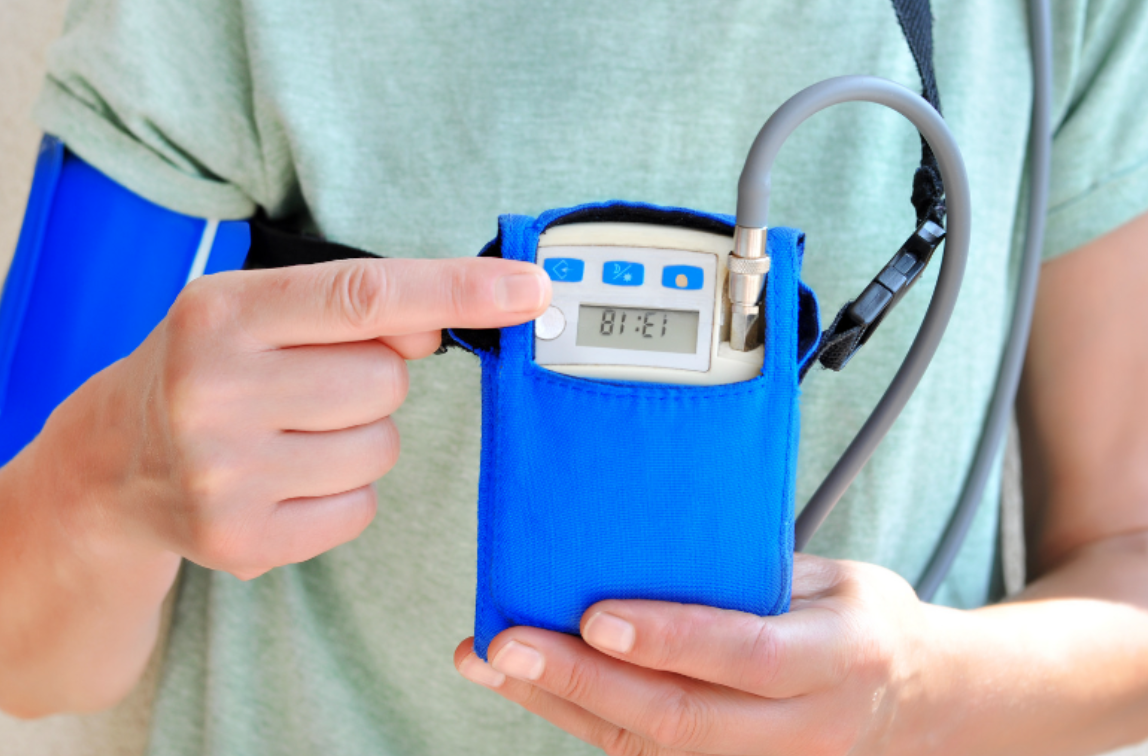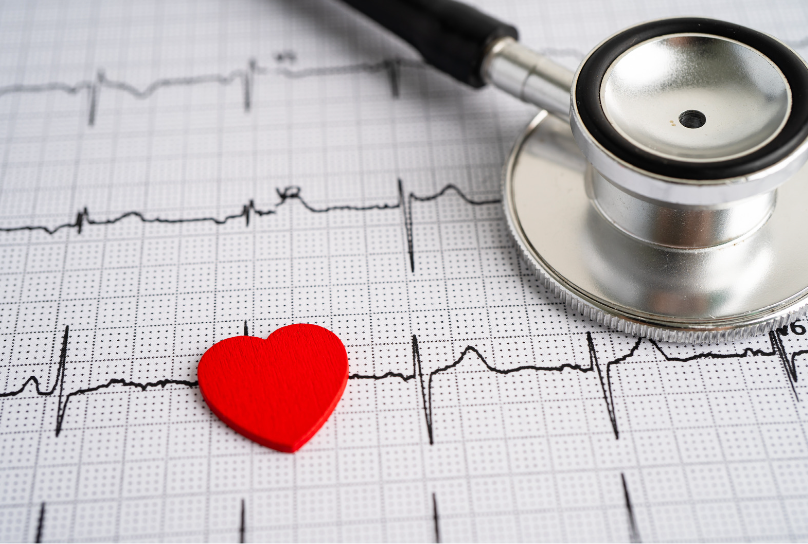Welcome to the world of cardiac ultrasound, a technological feat that lets us admire the heart in action, without having to go under the knife!
Here, we'll explore this fascinating subject together, breaking down some key terms such as cardiac ultrasound, ultrasound cardiology, heart images, cardiac examination and the holter. 🗝️
You'll discover how these techniques help our white-coated superheroes in their quest to better understand our precious internal engine (the heart), and make ever more accurate diagnoses to spice up your daily life. 🧑⚕️
And, of course, we'll be taking you behind the scenes to tell you all about the latest adventures of these fantastic technologies and the moving stories of the people they've saved!
So, are you ready to dive headfirst into the captivating world of cardiac ultrasound? This is the adventure you won't regret!
Cardiac ultrasound: What is it?
Cardiac ultrasound is a non-invasive technique that allows us to spy on the heart and its various components. Wondering how it works and what the benefits of this medical marvel are? Let me tell you all about it! ❤️🩹
Basically, echocardiography uses super-powerful sound waves to generate live images of our little internal pump.
At the time of the examination, a small gadget (nothing extraterrestrial, rest assured), called a transducer, is placed on your chest. This device sends out sound waves that travel through skin and tissue to the heart, and back to the transducer, which converts them into images on the screen.
So why opt for a cardiac ultrasound rather than any other method? Because it has all kinds of superpowers!

Why have a heart ultrasound? 🤔
Why have an ultrasound of the heart? It's a question many people ask themselves when faced with this examination for the first time. As a die-hard fan of cardiac ultrasound, I can't wait to tell you why it's so essential for monitoring our heart health.
➡️ Heart ultrasound, or echocardiography, allows medical professionals to see how our hearts beat. Using high-frequency sound waves, they can observe in real time the structures of the heart, and the blood flow that dances through the valves and chambers. It's like an internal ballet, if you will. 🩰
➡️ Secondly, the heart echo is a super-detective that can quickly identify various cardiac anomalies. For example, it can help diagnose diseases such as heart failure or congenital heart disease in infants.
Spotting these health problems early is a bit like having a crystal ball to predict the future: it allows us to start treatment earlier, and boosts our chances of living a long and healthy life. Not bad, eh? 🔮
➡️ And that's not all! Cardiac ultrasound also plays a crucial role in monitoring patients with chronic diseases such as hypertension or diabetes. These diseases can damage our heart muscle or blood vessels over the long term, so it's best to keep a close eye on them. And echocardiography makes it possible to adapt treatment if necessary.
➡️ And the best part? Cardiac ultrasound is non-invasive and safe! It does not use potentially dangerous X-rays, like some other medical imaging techniques.
No, it uses perfectly harmless sound waves. So you can enjoy these technological advances without worrying! It's a particularly good option for pregnant women, children and anyone who needs regular monitoring.
➡️ Finally, an echocardiogram is quick and easy. You lie quietly on a table while the technician moves the transducer over different parts of your chest to obtain clear images of the heart from different angles... And all this in less than 30 minutes sometimes!
That's why a cardiac ultrasound is so important! It allows doctors to accurately monitor the health of our heart, and plays a crucial role in the prevention, diagnosis and treatment of cardiovascular disease.
What is a stress ultrasound?
The other day, while chatting with a doctor friend, we shared our views on the why and how of stress ultrasound. You know, that little thrill you feel when your heart races after a workout or an adrenaline rush? 🏃
Well, the stress echo is like a CT scan of your heart in action, under pressure.
The aim? To spot if anything is amiss, if the heart muscle is pouting or the valves are on strike. It's a great way to spot the bad guys, such as coronary heart disease, heart failure or certain valvular pathologies.
It's simple: we start with a quiet ultrasound of the heart at rest. Next, you'll have to get your heart rate up (like a marathon runner on a treadmill). In between, photos of the heart are taken at regular intervals to see how it's reacting, whether everything's going well or if there's trouble in the air.
And the best part? It's all done without the slightest intrusion, without any catheter! A great, non-invasive way to keep an eye on your heart. So, if your doctor suggests a stress echo, know that it's for the good of your little beating heart.

Holter: An essential complement to cardiac echocardiography
You're wondering what it is? It's that little gadget you wear for 24 hours (or more) to record your heartbeat. Amazing, isn't it? 🤖
Imagine having frequent palpitations, or feeling unwell for no apparent reason. The holter is there to capture every second of your heart's activity to help understand what's wrong. It allows doctors to scrutinize these electrical signals and spot any irregularities that might signal a heart problem.
But that's not all! The holter is also a super-spy for checking the effectiveness of your medication. Let's say you're taking a medication to stabilize your heart rate, and you're wondering if it's really working. Well, the holter is there to give you that answer! 🕵️
What's more, if you've just had heart surgery, the holter is there to monitor how your heart is recovering. Thanks to it, doctors can assess your state of recovery and adjust the necessary follow-up. So, if you have any questions about your heart health, or that of a loved one, don't hesitate to talk to your doctor!
How do I prepare for a heart scan?
If you have an appointment for a cardiac ultrasounda few minor preparations are required.
💡 First, remember to wear comfortable clothes. You might have to lie down for a while, so you might as well be comfortable, right?
💡 Depending on your doctor's or technician's recommendations, it may be necessary to avoid certain foods or drinks before the exam. So don't hesitate to ask any questions that pop into your head!
Why all this preparation? Good preparation means more accurate results, and makes the technician's job easier. So they can concentrate on what's important: your heart! ❤️
Finally, after the ultrasound, you'll be faced with a report full of numbers and medical terms. It's true, it can seem a little intimidating. But don't panic! Here are a few tips to help you decipher it all.

How to interpret the results of an echocardiogram?
👉 First, you'll see an overview of how your heart works. If all goes well, it might say something like "normal heart function". Phew, that's reassuring!
👉 Next, you'll see detailed information about each part of your heart. For example, you might see terms like "narrowing" or "insufficiency" when talking about heart valves. If this is the case, don't hesitate to ask your doctor for more information.
👉 And don't forget, cardiac ultrasound is often done to monitor the evolution of a problem that's already been identified. So, even if the results aren't perfect, it doesn't mean everything's wrong. The most important thing is to talk to your doctor and follow his or her recommendations for taking care of your heart every day.
I hope this information will help you to understand a little better the importance of the holter and cardiac ultrasound. And don't forget, the heart has its reasons that reason doesn't know... But thanks to cardiac ultrasound, we can still see things a little more clearly!
And that's where the Center Cardio Laval. Our dedicated team of experts is ready to accompany you on your journey to a stronger, healthier heart. 💪🏼
Don't hesitate to make an appointment with us for an examination, a consultation or simply to discuss your cardiac concerns. We're here to listen, reassure and guide you in the right direction. Every heartbeat counts, and we want to make sure yours are beating to the rhythm of health and happiness. 🥁❤️



